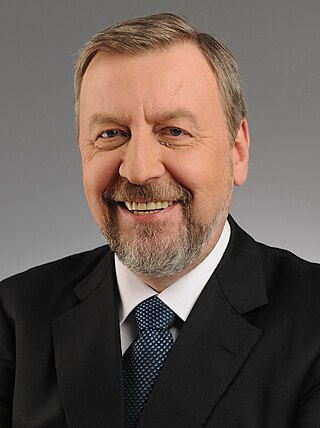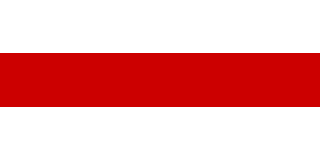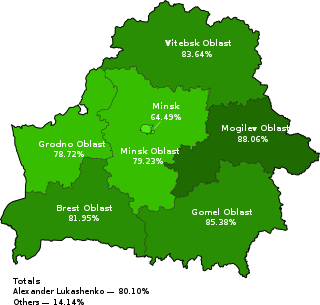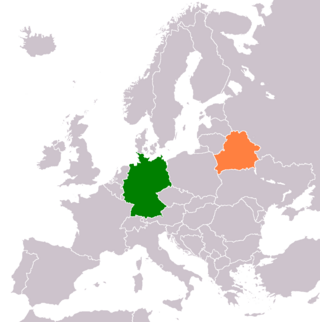Zubr was a civic youth organization in Belarusin opposition to President Alyaksandr Lukashenka. The organization drew inspiration from Otpor! student movement which contributed to the overthrow of Slobodan Milošević in 2000, and from Gene Sharp's writings on nonviolent action. Zubr became noticed internationally in 2005 when US Secretary of State Condoleezza Rice, who was visiting Lithuania, met their leaders, who risked imprisonment upon their return. Some reporters have credited Zubr's leaders with the idea of a 'Denim Revolution', which, they hoped would attract popular support as Ukraine's Orange Revolution and Georgia's Rose Revolution. But, Lukashenko had said: "In our country, there will be no pink or orange, nor even a banana revolution".

Presidential elections were held in Belarus on 19 March 2006. The result was a victory for incumbent, President Alexander Lukashenko, who received 84.4% of the vote. However, Western observers deemed the elections rigged. The Organization for Security and Co-operation in Europe (OSCE) declared that the election "failed to meet OSCE commitments for democratic elections". In contrast, election observers from the Commonwealth of Independent States (CIS) described the vote as open and transparent.

The Jeans Revolution was a term used by Belarus' democratic opposition to describe their protests following the 2006 Belarusian presidential election.
Iryna Khalip is a Belarusian journalist, reporter and editor in the Minsk bureau of Novaya Gazeta, known for her criticism of Belarusian President Alexander Lukashenko.

Presidential elections were held in Belarus on 19 December 2010. The elections were had originally been planned for the beginning of 2011. However, the final date was set during an extraordinary session of the National Assembly on 14 September 2010.

Andrei Olegovich Sannikov is a Belarusian politician and activist. In the early 1990s, he headed the Belarusian delegation on Nuclear and Conventional Weapons Armament Negotiations, also serving as the Belarusian diplomat to Switzerland. From 1995 to 1996, he served as Deputy Foreign Minister of Belarus, resigning as a form of political protest. He co-founded the civil action Charter 97, and was awarded the Bruno Kreisky Prize in 2005.

Chernobyl Way is an annual rally held on April 26 by the opposition in Belarus as a remembrance of the Chernobyl disaster.

The Belarusian opposition consists of groups and individuals in Belarus seeking to challenge, from 1988 to 1991, the authorities of Soviet Belarus, and since 1995, the leader of the country Alexander Lukashenko, whom supporters of the movement often consider to be a dictator. Supporters of the movement tend to call for a parliamentary democracy based on a Western model, with freedom of speech and political and religious pluralism.
Minsk Pride — gay pride in Minsk (Belarus). This is a festival in support of tolerance for gays, lesbians, bisexuals and transgender people in Belarus.

Independence Square is a square in Minsk, Belarus. It is one of the landmarks on Independence Avenue. The National Assembly of Belarus and Minsk City Hall are on this square. During the period of the Byelorussian Soviet Socialist Republic it was called Lenin Square. It is currently one of the largest squares in Europe.

The 2017 Belarusian protests were a series of demonstrations and street protests against President Alexander Lukashenko that broke out in late February 2017. Protesters mobilized against a tax levied against the unemployed in Belarus. Demonstrations and marches were held in sites throughout the country with sizes of several hundred to several thousand gathering at a given time.

Presidential elections were held in Belarus on Sunday, 9 August 2020. Early voting began on 4 August and ran until 8 August.
Anarchism in Belarus refers to anarchist movements in the Republic of Belarus and its historically associated territories within the Russian Empire. Anarchists in Belarus began in the 18th century when multiple anarchist organizations organizing separately against the Tsarist Russia. During the Russian Civil War anarchists organized into multiple anarchist federations and fought against the Red Army and seized control over sections of Belarus. Anarchists and other leftists across the former Russian Empire began an uprising against the Bolshevik government called by anarchists as the "Third Russian Revolution" most prominently in the uprising Russian and Belorussians staged a revolt during the Kronstadt rebellion. Belorussian and Russian anarchists would seize control over the Soviet Navy and nearly overthrow the Bolshevik government. However, Bolshevik repression and inability for the movement to organize effectively would lead to the uprisings' failing.

Sergei Leonidovich Tikhanovsky or Siarhiej Leanidavič Tsikhanoŭski is a Belarusian YouTuber, video blogger, dissident and pro-democracy activist. He is considered by Amnesty International to be a prisoner of conscience. He is known primarily for his activism against the government of Belarus's long-serving president, Alexander Lukashenko. In May 2020, he announced his intention of running for the 2020 presidential election, but he was arrested two days after the announcement, and his wife Sviatlana Tsikhanouskaya then ran in place of him as the main rival to Lukashenko in the contested election.
Events in the year 2020 in Belarus.

The 2020–2021 Belarusian protests were a series of mass political demonstrations and protests against the Belarusian government and President Alexander Lukashenko. The largest anti-government protests in the history of Belarus, the demonstrations began in the lead-up to and during the 2020 presidential election, in which Lukashenko sought his sixth term in office. In response to the demonstrations, a number of relatively small pro-government rallies were held.

The 2010 Belarusian protests were mass protest actions in Belarus against the results of the 2010 Belarusian presidential election, which took place on December 19, 2010 and were brutally dispersed. Between 10,000 and 60,000 people took part in the protest on October Square and Independence Square in Minsk. It was announced that a people's movement for free elections would be created without Lukashenka. Some participants tried to break into the Government House. Clashes with riot police took place. As a result, dozens of people were detained and beaten, including presidential candidates Khaklyaeu, Sannikov, Kastusyou, Statkevich, and Rymasheuski.
The 2020–2021 Belarusian protests were a series of political demonstrations and protests against the Belarusian government and President Alexander Lukashenko. The largest anti-government protests in the history of Belarus, the demonstrations began in the lead-up to and during the 2020 presidential election, in which Lukashenko sought his sixth term in office. In response to the demonstrations, a number of relatively small pro-government rallies were held.

Belarus–Germany relations are the bilateral relations between Belarus and Germany. Germany has an embassy in Minsk. Belarus has an embassy in Berlin, a consulate general in Munich, and two honorary consulates in Cottbus and Hamburg.
The Freedom March was a 1999 protest by the Belarusian opposition in the Belarusian capital of Minsk. The protest was caused as a result of fears of Belarus being annexed into Russia as part of the then-impending ratification of the Union State. Additional concerns of protesters were the enforced disappearances of opposition politicians Viktar Hanchar and Yury Zacharanka and, more broadly, the authoritarian rule of President Alexander Lukashenko. The protest, which ended in a violent confrontation between the city's police and protesters, resulted in the Belarusian government walking back plans for the Union State and the continued independence of Belarus from Russia.













